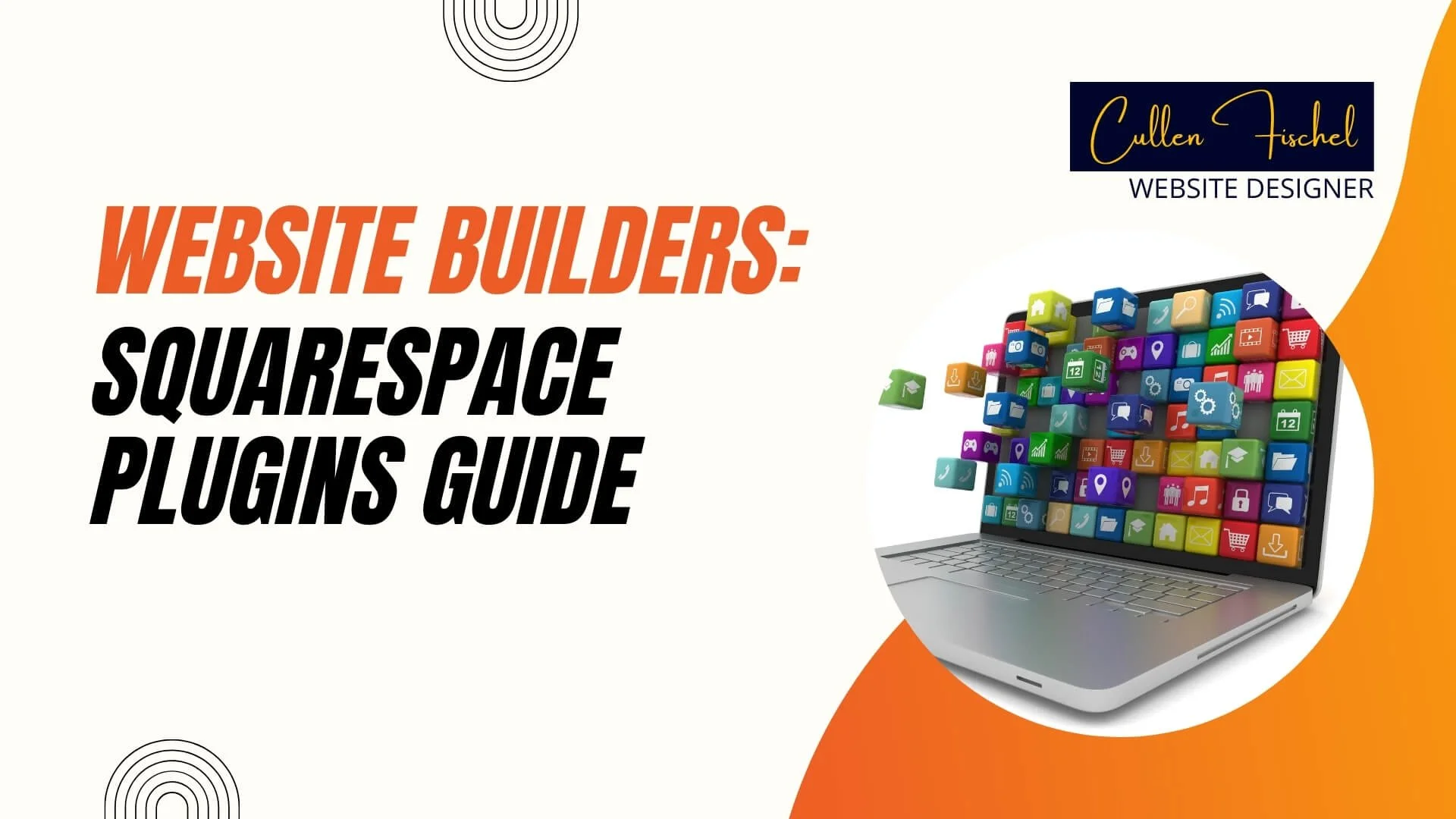Hidden Gems: Underrated Website Builders Worth Exploring
Hidden Gems: Underrated Website Builders Worth Exploring
Tired of the same old website builders? Find hidden gems and get a website designer's insights.
Cullen Fischel | JUNE 7, 2024 | 5 min. read
5 minute read
By Cullen Fischel, website designer
In the world of digital marketing, having a strong online presence is crucial. A well-designed website acts as your digital storefront, and website builders have become a fantastic way to create professional, functional websites without needing to be a coding whiz.
Sure, there are the big names like Wix and Squarespace, but sometimes the hidden gems deserve a closer look. These underrated website builders can offer amazing features, fantastic ease of use, and often at a lower price point than their more established counterparts.
Key Takeaways
Don't be afraid to explore: Underrated website builders can offer fantastic functionality and affordability compared to traditional website development.
Specialization is your friend: Lesser-known builders might focus on specific niches like eCommerce or portfolios, providing features tailored to your needs.
Embrace innovation: Newer builders often bring fresh design approaches and unique features to the table.
Think user-friendly: Many underrated options prioritize ease of use, making them perfect for beginners.
Why Consider Underrated Website Builders?
Let's face it, building a website can seem daunting. Traditional development can be expensive and time-consuming, requiring coding knowledge you might not possess. Website builders offer a solution – a user-friendly platform that allows you to drag, drop, and customize your website without needing a computer science degree.
But why look beyond the big names? Here are a few reasons why exploring underrated website builders might be your secret weapon:
Cost-Effectiveness: Many hidden gems offer feature-rich plans at significantly lower prices than established builders. This can be a huge win for small businesses or startups working with a tight budget.
Specialization: Some builders cater to specific niches. For instance, you might find a platform that excels in building beautiful and functional online stores, complete with inventory management tools and payment gateways. Another builder might specialize in creating stunning portfolio websites for photographers or artists.
Innovation: Newer builders often push the boundaries of web design with fresh design templates and unique features. This can be a great way to set your website apart from the competition.
Ease of Use: Many underrated builders are built with beginners in mind. They offer intuitive interfaces, drag-and- drop functionality, and helpful tutorials to guide you through the website creation process.
Exploring the Hidden Gems: Builder Spotlights
Now that we've explored the benefits of venturing beyond the usual suspects, let's take a look at some specific underrated website builders that might be a perfect fit for your business.
Google Sites
While not a newcomer to the website builder scene, Google Sites often gets overlooked. Don't underestimate this free website builder from the tech giant!
Google Sites is a fantastic option for those seeking a user-friendly platform with strong integration with other Google Workspace apps like Docs, Sheets, and Drive. This seamless integration allows you to easily add content to your website directly from your existing Google files.
Pros:
Completely free to use
Easy to use interface with drag-and-drop functionality
Tight integration with Google Workspace apps
Mobile-responsive templates
Decent selection of free templates
Cons:
Limited design flexibility compared to some other builders
Fewer advanced features
Not ideal for complex websites
HubSpot CMS
HubSpot CMS is a powerful website building solution deeply integrated with HubSpot's popular marketing, sales, and service automation tools. It serves as a robust option for businesses desiring a website tightly connected to their overall marketing operations.
Pros:
All-in-one solution: Leverages HubSpot's CRM, marketing automation, and more, creating a centralized hub for your online presence.
Easy to use: Features a drag-and-drop interface and intuitive editing tools.
Focus on lead generation: Includes built-in features for landing pages, forms, and conversion optimization.
Excellent SEO tools: Provides guidance and tools to enhance your website's search rankings.
Strong support and resources: HubSpot has extensive documentation and a helpful community.
Cons:
Can be expensive: Especially once you explore the higher pricing tiers that include more advanced features.
Less design flexibility than some competitors: While customization is possible, it may have limits compared to builders with more open-ended design freedom.
Steeper learning curve for non-HubSpot users: Those unfamiliar with HubSpot's overall ecosystem may need some time to adjust.
Webnode
Webnode is a popular website builder known for its ease of use and focus on multilingual website creation. It's a solid choice for individuals and small businesses looking to establish a simple yet professional online presence.
Pros:
Super easy to use: Drag-and-drop interface makes website creation a breeze, even for beginners.
Multilingual support: Excellent tools to build websites in multiple languages.
Attractive templates: Offers a good selection of modern-looking templates.
Affordable: Has a free plan and reasonably priced paid tiers.
Backup and restore: Ability to backup your site provides peace of mind.
Cons:
Limited customization: Design flexibility can feel somewhat restricted.
Fewer advanced features: Lacks some of the bells and whistles found in more complex builders.
Webnode branding on lower-tier plans: The free and lower-priced plans include Webnode advertisements on your site.
Cullen Fischel’s Tips for Success
Before diving headfirst into building your website, here are a few tips from yours truly to ensure a smooth and successful experience:
Define Your Goals: Before you even start browsing builders, take a step back and define your website's goals. What type of website do you need? An online store? A portfolio? A blog? Knowing your website's purpose will help you choose a builder with the features you need.
Get Experimental (But Not Reckless): Most website builders offer free trials or plans. Take advantage of these to test out different platforms and see which one feels most intuitive for you. Don't be afraid to experiment, but remember to stick with one builder once you've found a good fit to avoid wasting time and effort switching platforms.
Invest in Good Design: Even with beautiful templates, good web design principles still matter. Consider hiring a website designer, like myself, to give your website that professional polish and ensure a user-friendly experience for your visitors.
Don't forget SEO: Website builders often have SEO tools; learn the basics to optimize your site for visibility.
Ask a Website Designer
I'm not tech-savvy. Are these underrated builders really usable?
Absolutely! The beauty of many underrated builders lies in their focus on ease of use. If you're not comfortable with coding or complex design software, don't worry. A website designer can help you choose a platform that has:
Drag-and-drop interfaces: Allowing you to visually build pages by placing elements like text, images, and buttons wherever you like.
Pre-designed templates: Giving you a strong starting point for layout and style, while still leaving room for you to customize.
Built-in tutorials and support: Many builders offer step-by-step guides, videos, and even live chat to assist you.
It's always helpful to be upfront about your tech comfort level when discussing your project with a designer.
How important are my website's loading speed and responsiveness?
They are critical!
User experience: Slow-loading pages frustrate visitors, causing many to leave a site before it even loads fully. Similarly, a website that doesn't adapt well to different devices (phones, tablets, etc.) annoys users. Both of these lead to poor first impressions and lost traffic.
Search engine rankings: Google and other search engines consider site speed and responsiveness in their ranking algorithms. A fast, mobile-friendly website is more likely to rank higher in search results.
The good news is that many website builders prioritize speed and responsiveness as core features. They optimize code and image sizes for you on the backend.
I'm worried about losing creative control with templates. What can I do?
This is a valid concern! Here are a few approaches:
Choose highly customizable builders: Look for platforms with flexibility. Some allow you to adjust colors, fonts, and element positioning. Others even allow you to tweak the underlying code (HTML/CSS) if you're comfortable.
Discuss potential with a designer: A designer can assess builders and templates, helping you find options that fit your desired level of control. They may have tricks and workarounds as well!
Basic HTML/CSS knowledge goes a long way: If you're willing, learning a little HTML/CSS opens up even more possibilities. Many platforms have spaces to insert custom code bits, letting you tailor elements that templates can't reach.




